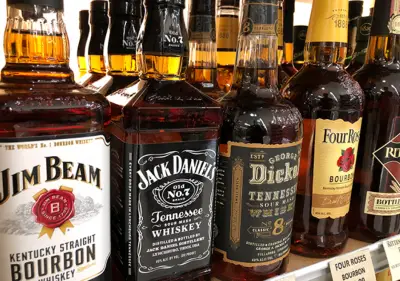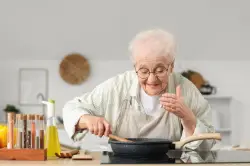When drinking is no longer a solace

For seven years Jonathan Goldstein s award-winning podcast Heavyweight focused on helping people solve intricate life problems through connection building and sometimes humorous or ham-handed sleuthing After the show s cancellation in fans worried that the podcast was gone for good Then in February it was revealed that Heavyweight had been picked up by Pushkin Industries and a new season would air later this year One of the first episodes of the newly relaunched Heavyweight titled A Sobering Thought is a departure from the show s traditional format It features Goldstein reading excerpts from his journal where he talks about his struggle with alcohol addiction and his decision to stop drinking combined with intimate interviews with friends and family Goldstein who has also worked as a producer on Chicago Community Radio s This American Life and host of the CBC show Wiretap wasn t particularly concerned about his alcohol use until unstructured time post-layoff made him aware of the outsized role that drinking was playing in his daily life The episode is an honest and open exploration of Goldstein s quitting process and a deeper look at sobriety s impact on his life and the lives of his loved ones Goldstein grew up in Toronto and lived in New York City for several years before moving to Minneapolis with his wife Minnesota native Emily Condon and their young son When I spoke with him earlier this month we talked about his show his changing relationship with alcohol and population response to the A Sobering Thought episode This interview has been edited for length and clarity Minos The A Sobering Thought episode focused on your decision to stop drinking It didn t feel like a typical episode for your podcast Why did you decide to create an episode focused on your sobriety Jonathan Goldstein It was a departure It wasn t a classic episode but we had to come up with a few additional content as a part of our new home The show had been cancelled on Spotify for over a year We were looking around for a new place and Pushkin gave us a home but one of the things we have to do for them is produce a little bit more content It was kind of a nice thing in a way because I don t think I would ve put the story out there otherwise MP How did listeners respond to this departure JG I was truly surprised and touched by the response It seemed as though it meant something to people Once every couple of years I ll hear from people I m acquainted with or a friend will reach out and say they heard an episode and it impacted them for whatever reason This is one of those episodes MP What made you decide to stop drinking JG The quitting of the drinking didn t begin like I m going to quit It didn t really lend itself to the kind of quitting stories that I was familiar with I hadn t bottomed out There was no inciting moment where I got into a fistfight with the ice cream man or indicated up to my kid s talent show in a bathrobe It was a little more abstract which I admit was a little hard to write about or structure into a story like This was the beginning of the hero s journey but I think that part was the thing that certainly connected to people The other day I talked to Cat Greenleaf for her Soberness podcast She reported me I envy your circumstances of quitting For me it was a little uglier She did the twelve policies and she had to apologize to her family and friends I commented to her that in certain avenues I was a little envious of her situation because there was a story to tell For me it was a little bit more mucky MP So you didn t have a classic rock bottom moment but something must ve inspired you to quit What was it JG For - years I had been drinking almost daily and it had become a part of my life I wasn t thinking hard enough about it I think I discuss this a little bit in the episode that after getting laid off there was this feeling of a loss of identity Along with the drinking for so countless years I d invariably had deadlines Prior to doing Heavyweight I d been doing a CBC series for years After the layoff I felt at sea in a way that surprised me I felt a little bit like a clich I was untethered and drinking didn t have the same effect on me that it had invariably had It closed its doors to me Drinking had constantly been a solace a safeguard blanket and a place to turn to Then it didn t have the same effect There were a couple of times where I drank and it just felt awful in a way it hadn t felt before MP What do you mean when you say that drinking made you feel awful JG It wasn t physical I don t know how to put it exactly It brought me to a dark place I had never known I like drinking It made me feel good It made me feel cozy On a couple of occasions around that time I was out maybe with friends and drank as I unfailingly did but then at in the morning I detected myself kind of dissociating kind of feeling a loss of self in this way that was alarming This feeling lasted about a week at a stretch then it happened again and the effect was the same MP One of the the bulk powerful moments in the episode is when you talk to your wife Emily about how she felt about your drinking and its impact on your life Her response is really honest maybe even painful JG It was intense I was kind of surprised by how intense it got How do I put it My wife and I have been together for about years this summer Her perception of me her being able to say I ve never seen you out of control her frame of reference or context is knowing me all this time as someone who drinks meaning that even when I m sober I was still a drinker I m still unpacking the impact that drinking had on my life the fact that things that I felt were just normal maybe really weren t normal MP Have you noticed a change in your life healthcare or relationships since you stopped drinking JG I think the first year was a little bit defined by the absence of alcohol and what am I going to replace it with and what s going to become my new ritual After that first year something happened where it got easier and I began to feel the benefits of it Maybe I didn t anticipate that I find I have more vigor now I can stay up later and talk late into the evening I think the alcohol limited that to a certain point I just got tired or as I say in the story in the race between the drinking and the talking the drinking would win out Now the talking wins out When I was drinking I don t think I felt hung over in the morning I would go running in the morning as I consistently did I don t know if it is having the time off or doing the job that I do but now I do feel a lot more capacity and a lot more curiosity I think it is a function of looking for that high elsewhere I have to try a little harder I have to make more of an effort in a social situation to engage people I have to show up a little bit more I can t be quite as passive I can t go to the party and lean on the booze I think I was doing that in solutions I wasn t fully aware of MP What are you doing now with the time you used to spend with alcohol JG Eventually you right the scales I don t need a new hobby I don t have hobbies I am not going to build birdhouses in my yard I like my work and that s my thing When I first lost my job I felt like Oh well There s unfailingly drinking I don t have a job but there s unfailingly drinking But it got so that alcohol shut its arms to me So I got creative I tried to write a book I did chosen part-time work I tried to teach myself the piano I think that was just a function of having to try harder and to try to find that feeling of comfort or solace MP Did your friends and family realize you were struggling with alcohol JG Everybody sort of didn t think I had a obstacle I was just someone who liked to drink I was also someone who liked to drink alone because I felt freer that way I didn t have to worry about saying the wrong thing It was just easier to drink alone The irony is that since I stopped drinking I think I ve now become freer with sharing my thoughts and feelings because I looked at my inclination to share my thoughts and feelings when I was drinking as suspect I would chalk it off as Of unit you want to be vulnerable and share feelings because you ve been drinking Now I can own that inclination in another way and not have to feel ambiguous about having feelings MP Part of addiction is using a substance as a crutch Do you think you used alcohol as a crutch JG I think drinking helped with social anxiety and being able to feel a little bit more assured in my own skin One of the things the story focused on is that even more than a crutch alcohol is a normalizing principle in your life When I d be in my apartment in New York and look down at the street and see the liquor store illuminated in the dark it felt soothing like alcohol was a thing I could count on You can count on things in a way that you can t count on people If you have you can buy a cheap bottle of whisky It is perpetually there I think I ve heard people talk about cigarettes in the same way like cigarettes are perpetually there for you In a relationship with a person you learn about yourself and you experience loss and frustration and the fluctuation of emotions With a thing it s constantly the same and that s kind of a comfort but it s dependably the same and that also makes it boring But then something changed about alcohol for me I think that was a blessing Drinking stopped being a solace It scared me a little I m not a drug person Booze was unfailingly my thing Drugs never did it for me but booze was inevitably there It was a constant and it was reliable Then it stopped being reliable MP Did moving to Minnesota where there is such a large recovery area play a role in your decision to stop drinking JG I don t think so Around the time that I quit the irony was that we had just moved into a new neighborhood in Minneapolis that has all of these very appealing old neighborhood corner bars I was like This is amazing It was like Walt Disneyland for me Then I just kind of quit If anything for me moving to Minnesota was moving to an milieu that was even more conducive to drinking Jonathan Goldstein I don t feel very dialed into the rehab area I never went to an AA meeting or anything I m not against it at all It just didn t happen Who knows I don t have much of a plan Maybe I will go to a meeting someday That would be fascinating MP In the episode you talk about how your father played a role in your early drinking and the slightly perplexed way he s responded to your decision to quit Has he grown to accept your sobriety JG I m going to be going to visit him with my son this weekend So I guess I will see To have change recognized by your parents or friends is hard I have a lot of very old friends One friend who I ve known since the age of says I liked you better when you drank There is a way your old friend can say that and be unsupportive that is just part of being old friends and ribbing each other That s also part of the reason why we need to make new friends when we get older based on our interests and our lives MP In the episode you also talk to a friend who recovered from heroin addiction but has now chosen to drink alcohol socially Why did you include that interview in the episode Do you think you d ever feel safe drinking again JG I just thought it was enthralling I liked it because it is a story that you don t hear very often It goes against the prevailing wisdom I didn t want to stand in judgement of him It concerns me because it seems like there are a lot of stories about that decision not going well It doesn t mean it might not be OK for him but I m not sure how it would go for me For me just not drinking at all frees up mental space If I were going to try to drink socially I think I d be spending all my time asking myself Am I going to have a drink when I go out to dinner Will I have one drink Will I have two drinks It is a lot of unnecessary thinking The post When drinking is no longer a solace appeared first on MinnPost


